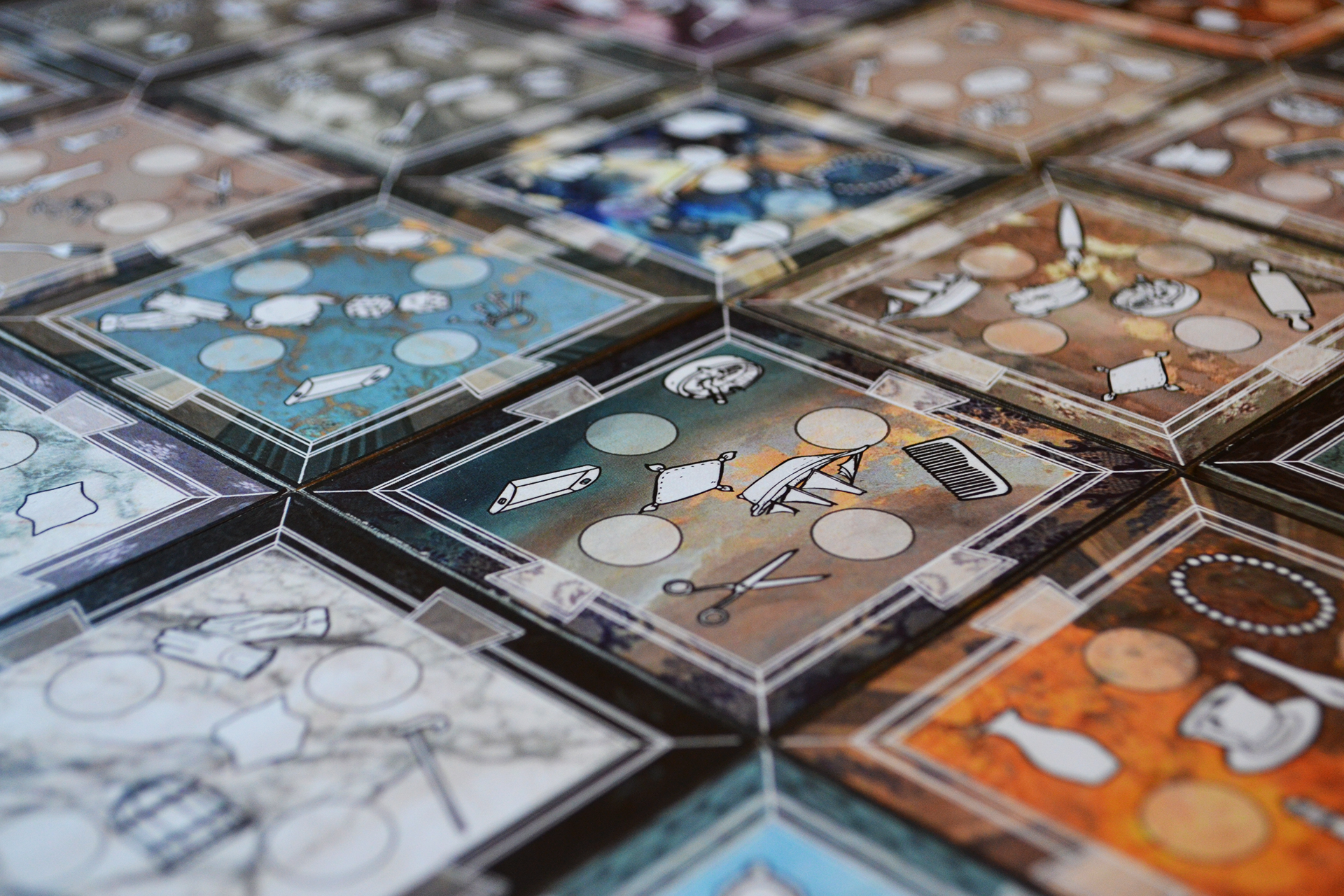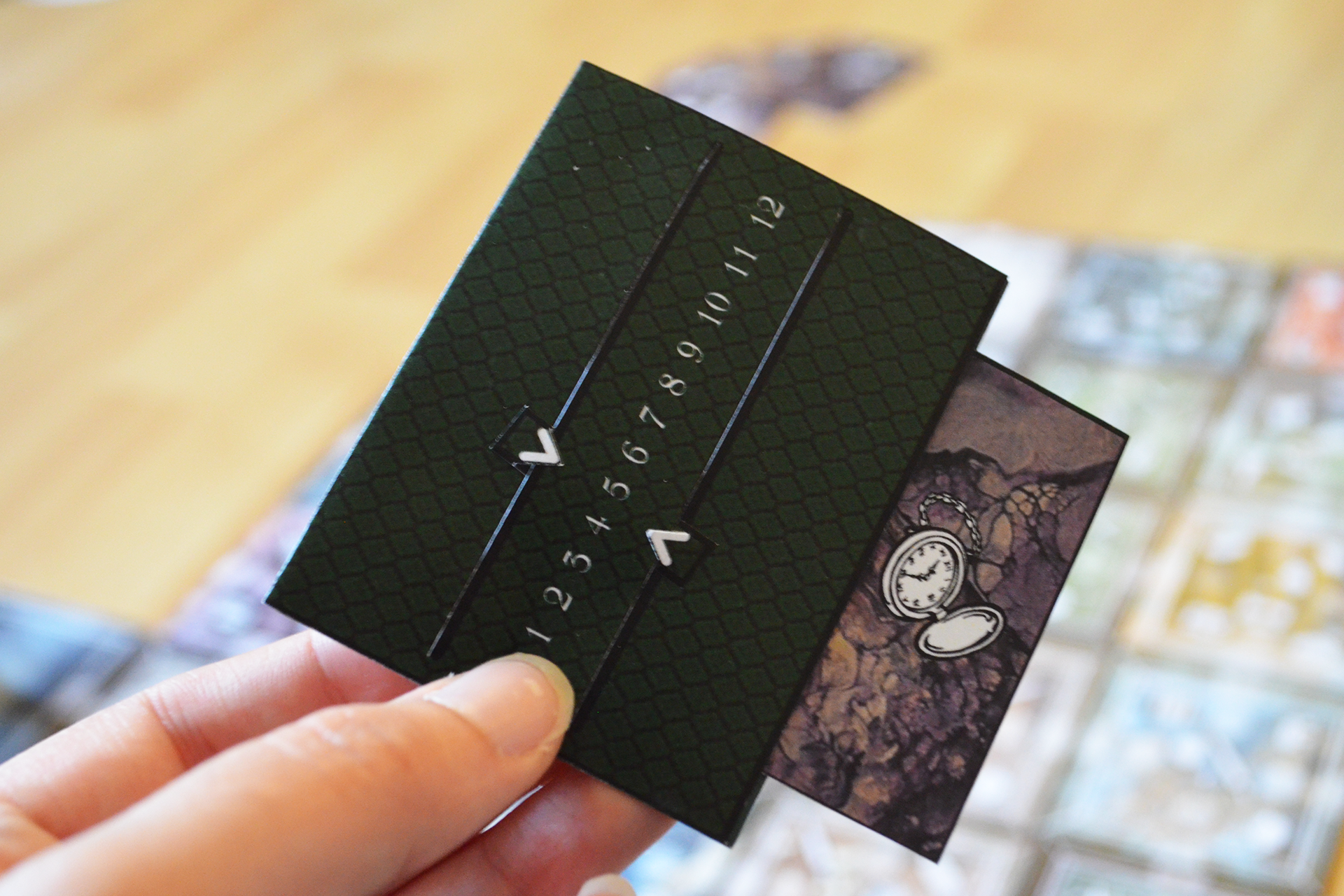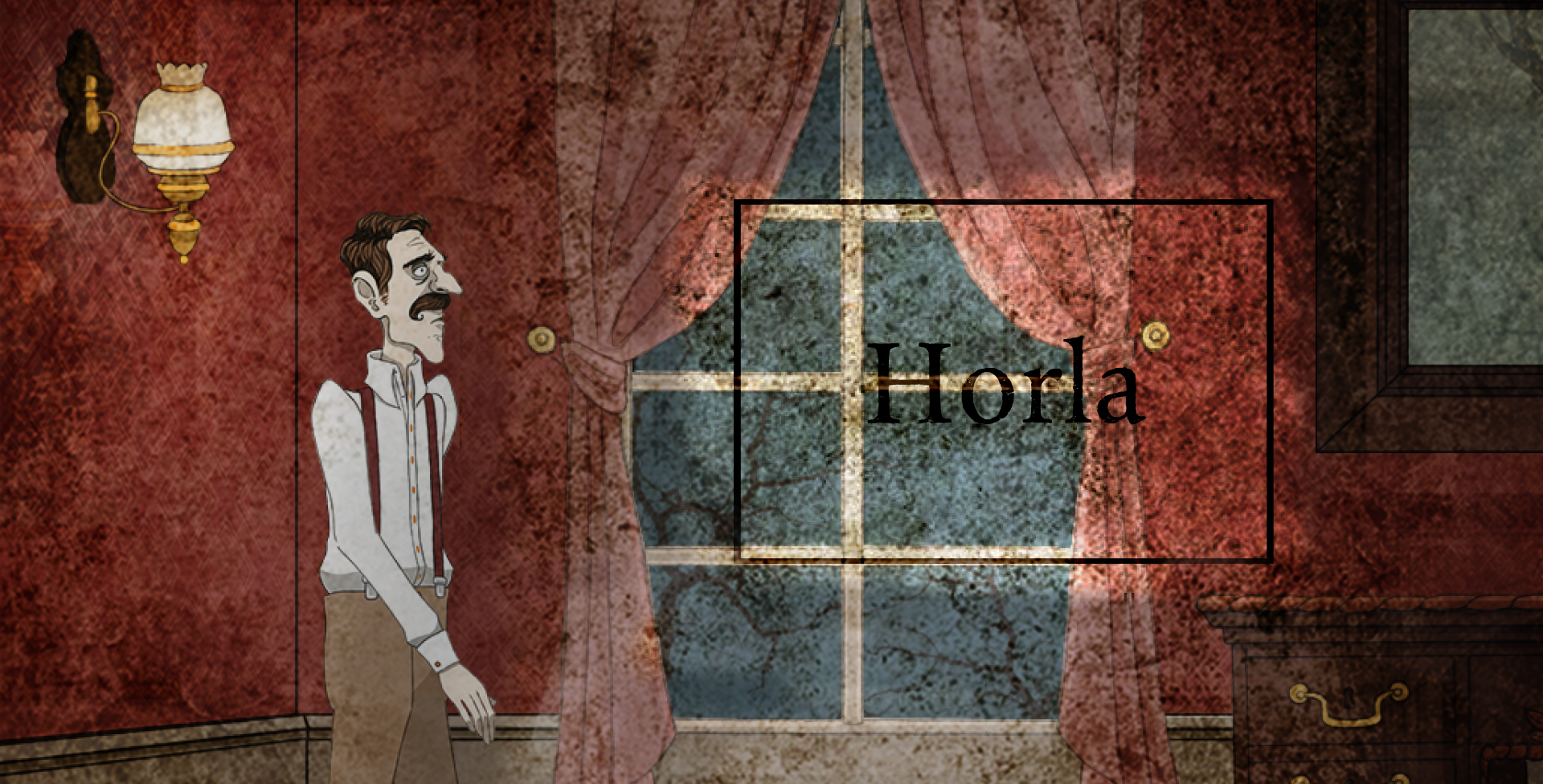

The player is the owner of a great mansion. A mansion where light changed the day before doesn't work the following day. A mansion where seats are knocked over without apparent reason. A mansion where a shadow lingers in corridors... Reality or hallucinations?
This video game is focusing on paranoia, omnipresent element in Maupassant's novella. The gameplay and scenario work together to give this feeling. Some actions have no impact on the progress of the game, such as locking doors. Nevertheless thoses ones are counted without noticing the player so to derminate progressively if he is going paranoid or if he remaining rational in his choices through the game.
Team composed of four students: Marie Andreucci (myself), Nicolas Maruizza (developper), Marine Rétoin (art director et 2D artist) et Benoît Sena (game designer and level designer).
Student project
2017
2 month
Team of 4 people
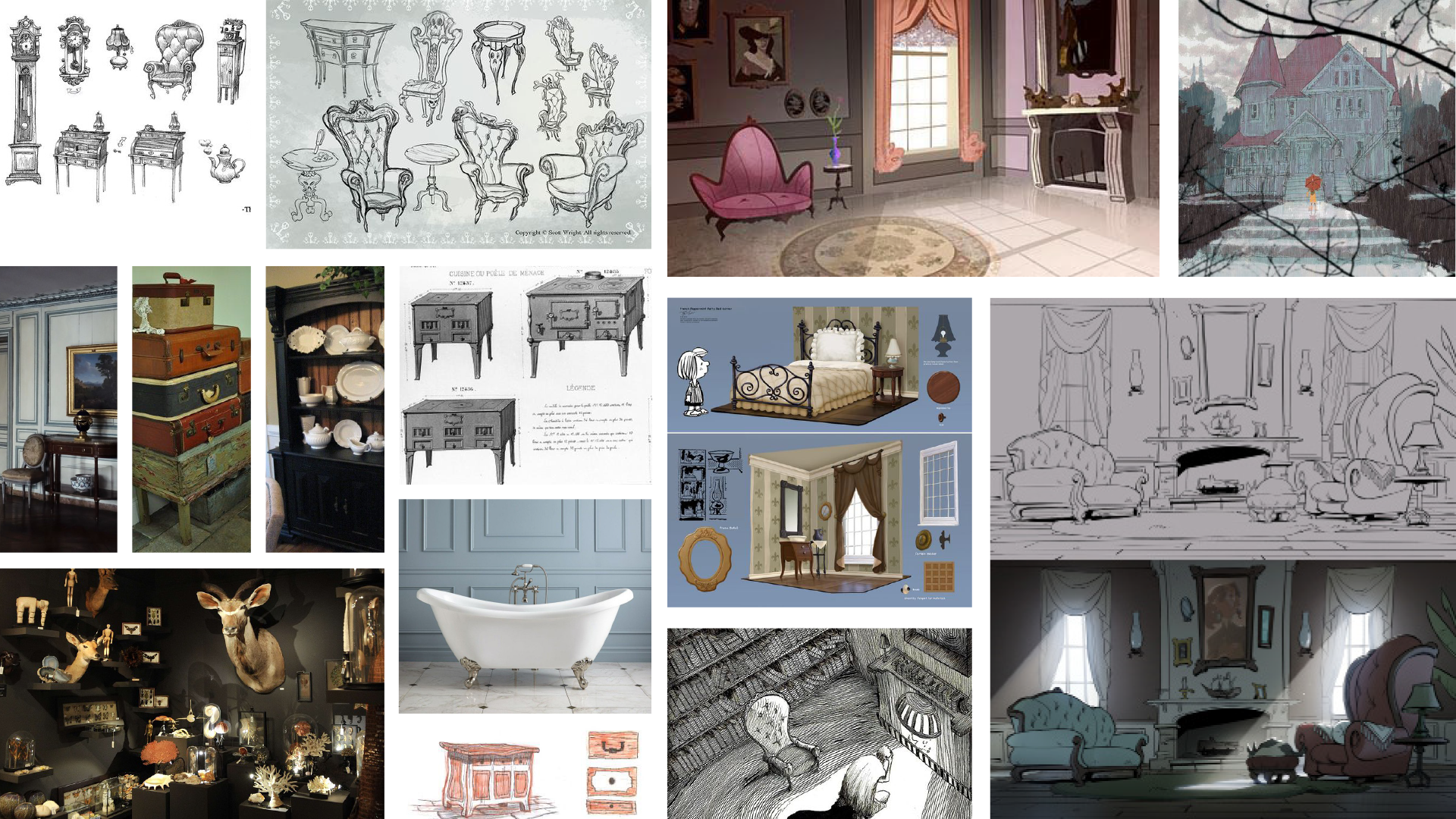
Define in detail what the game going to be : gameplay, art, script and game feel
Ensure game's good direction
Listen and inspire team respecting their differences
Rework design to ensure feasability
Organize work in the form of short term task
Two months to develop simultaneously a video game and a boardgame is really intense. Since we didn't have time to think and plan the project before, which made his management complicated. With hindsight, we should have realized that boardgame needed longer time product (board and visuals creation) because of our dealine and it should have be more relevant to develop video game on a game engine dedicaded to point and click (Unity was impose by the school) in order to earn time.
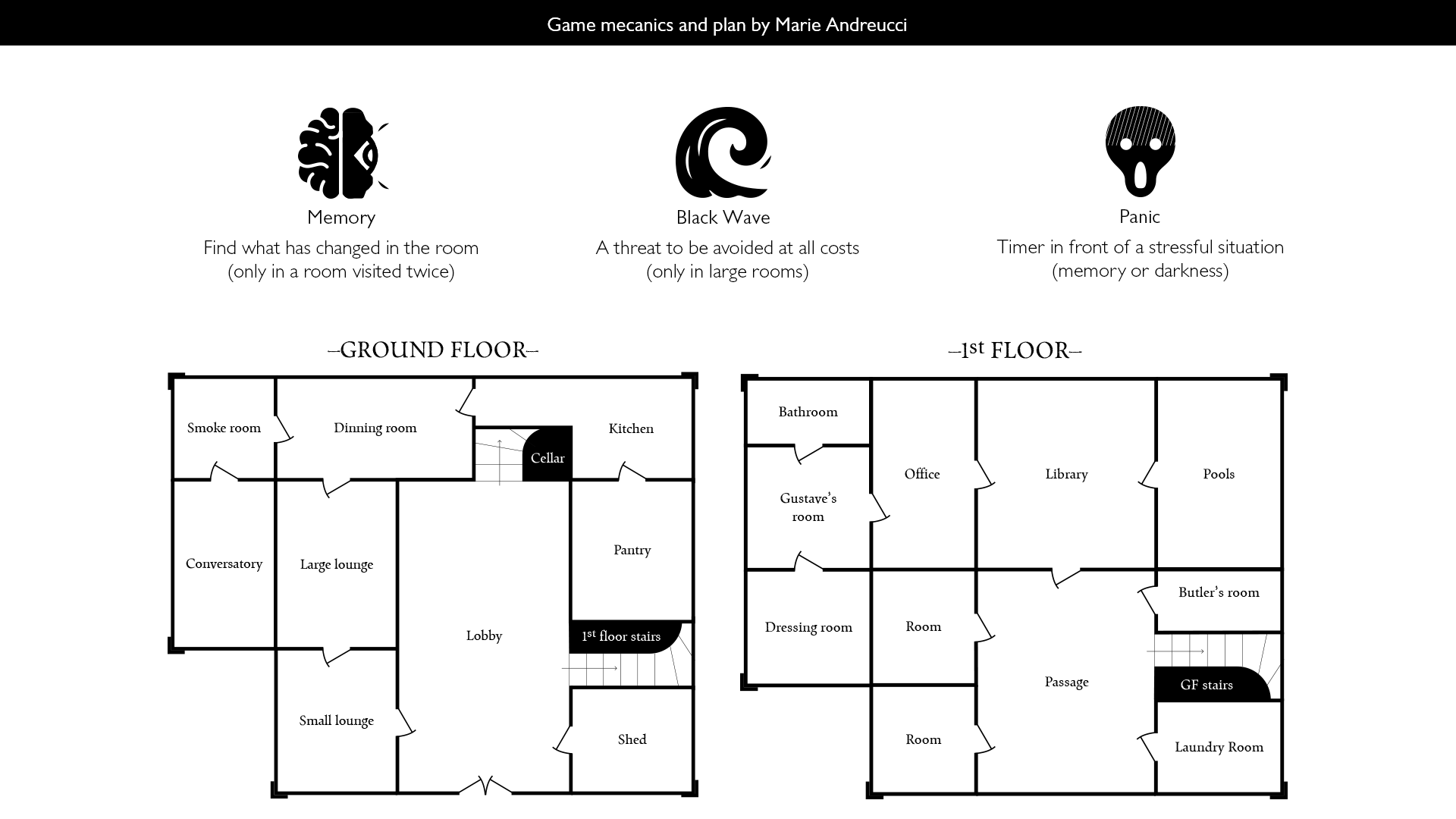
Give a distinct personnality to the video game and the boardgame
Suggest concepts for the game which reinterprete Maupassant's work
Writting and page setting of a clear and accurate Game Design document
Managing difficulty curve and story tension
Despite deadline's difficulty, with Benoît we really enjoyed to design both games. The video game in particular where we have broach the theme of paranoia via narrative and game design. We felt like we were working on play, since all actions take place in a mansion and where characters cannot leave.
As for the boardgame, it was far more easy to test with scrap of paper or with geometrics shapes in Illustrator. This had ask an exemplary stricness to ensure the hundred square that composed the board were unique with common symboles with other squares.
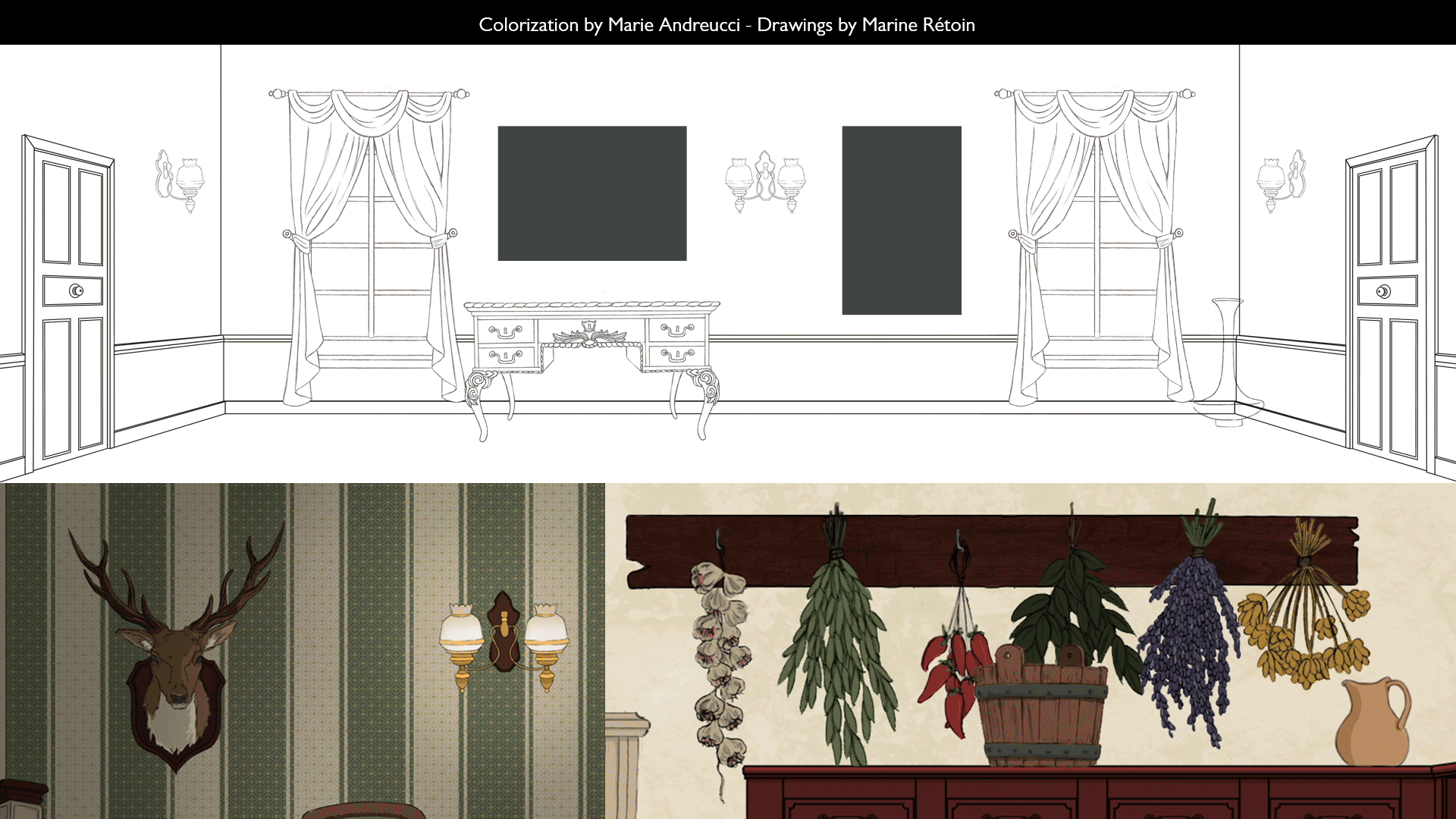
Work on visuals closely coordinated with the art director
Respect scrupously color palette determinated by her
Ensure historic, wallpaper and portrait accurancy present in rooms
Colorize each element comprise in rooms regarding light orientation
Bringing detail to objet in order to make them more convincing
Graphic production on both games was considerable. The boardgame counts 50 pictograms and 50 clues cards with unique combination. Video game's demo needed 9 rooms very distinct : a room, an office, a library, a large lounge, a hall, a passage, a little lounge, a dinning room and a kitchen. We had decided to determinate a considerable time to product empty rooms and elements (furnitures, objects, frames, etc) to, afterwards, "dress up" each rooms and so earn time. Marine had product each rooms in line drawing. To lighten her workload and allow her to work on the boardgame, I colorized each room. This executive task asks a lot of patience and concentration. Even though repetitive, this one was relaxing because it requires not any thinking besides color harmony.
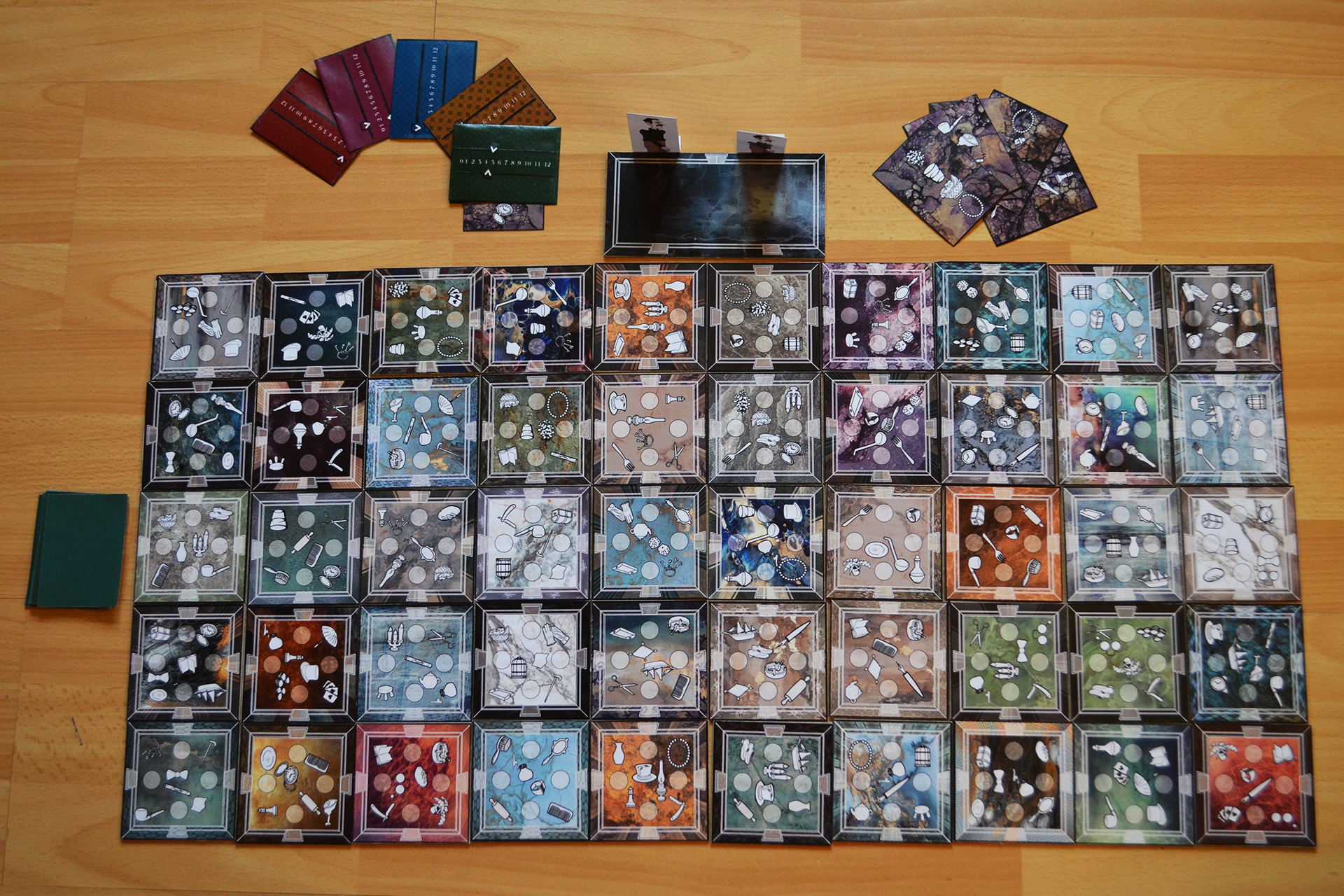
Welcome in the Horla's curse mansion. This ghost awaits his victims, greedy of their fear. One way to get rid of this curse : purge by fure. Enter in the mansion, but... avoid the Horla. You are not up to resist to it. Ruse and stealth will be your best allies and time your worst enemy.
The boardgame goes against the flow of video game's gameplay. Although it takes place in the same mansion, the boardgame focuses on player's collaboration to "defeat" the ghost that haunt the place. Rules encourage team cohesion via bonus and malus throughout the game. The game is easy to learn and get more depth on followings ones. It has a replay value due to random organization of the 50 squares.
3 to 5 players
6 years and +
25-30min
3 phases of game
